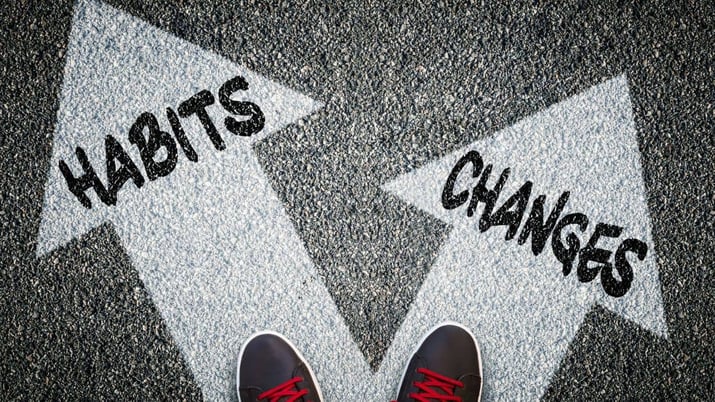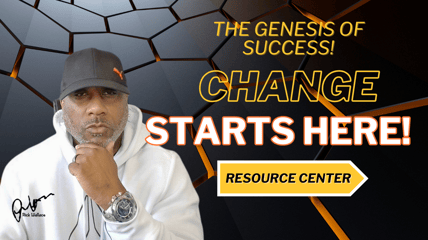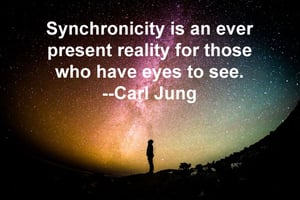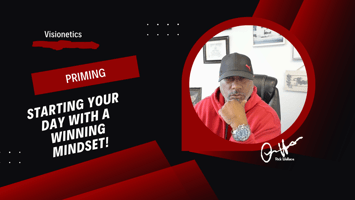Unlocking the Power Within: How Your Thoughts Shape Your Future Reality Image Source: Odyssey...
Unleashing the Power of Habit: How Your Daily Routines Shape Your Future
Unleashing the Power of Habit: How Your Daily Routines Shape Your Future

Introduction:
Habits are the silent architects of our lives, shaping our thoughts, actions, and, ultimately, our destinies. From the moment we wake until we retire to bed, we are guided by a myriad of habits—some conscious, others subconscious—that dictate the course of our days. Yet, the true power of habits lies not in their immediacy but in their cumulative impact over time. In this article, I delve deep into the intricate workings of habits, exploring how they are formed, how they influence our behavior, and, most importantly, how we can harness their transformative potential to design the lives we aspire to lead.
Understanding the Nature of Habits:
At its core, a habit is a behavior that has become automatic through repetition. Whether it's brushing your teeth before bed, reaching for a cup of coffee in the morning, or scrolling through social media during idle moments, habits are ingrained patterns of behavior that require minimal conscious effort to execute. The foundation of habits lies in the neurological pathways of the brain. Each time we perform a habitual action, neural connections are reinforced, making it easier for the brain to follow the same pattern in the future. Over time, these pathways become deeply entrenched, shaping our default responses to various stimuli.
As human beings, we are not merely creatures of habit in action; our habitual tendencies extend far beyond our external behaviors and permeate the realms of thought and emotion. Just as we engage in repetitive actions that become ingrained routines, our minds follow well-trodden thinking and feeling paths. These habitual patterns of thought and emotion are deeply intertwined with our identities, shaping how we perceive the world, interpret events, and respond to stimuli. Whether it's a recurring worry that plagues our minds or a persistent feeling of joy in the presence of loved ones, our habitual thoughts and emotions profoundly influence our daily experiences and overall well-being.
The power of habitual thinking and feeling lies in their ability to shape our perceptions and color our reality. Over time, the neural pathways associated with habitual thought and emotion become increasingly fortified, making it easier for our minds to default to familiar patterns. While some habits of thought and emotion may serve us well, providing comfort, stability, and resilience in the face of adversity, others may be limiting, reinforcing negative beliefs, or perpetuating harmful emotional states. Recognizing the role of habitual thinking and feeling in shaping our internal landscapes empowers us to cultivate mindfulness, challenge ingrained patterns, and consciously choose thoughts and emotions that align with our values and aspirations.

The Habit Loop:
The habit loop concept is central to the formation and perpetuation of habits, as Charles Duhigg elucidated in his seminal work, "The Power of Habit." The habit loop consists of three key components: cue, routine, and reward. The cue serves as the trigger that prompts the initiation of a habit, signaling to the brain that it's time to engage in a particular behavior. This behavior could be anything from feeling stressed (cue) to reaching for a cigarette (routine) to experiencing a momentary sense of relief (reward). Understanding the cues that precede our habits is essential for unraveling their hold over us.
Rewiring the Brain: The Power of Habit Transformation
While habits may seem immutable, the human brain possesses remarkable plasticity, allowing us to rewire existing neural pathways and forge new ones. This process of habit transformation begins with self-awareness—recognizing the habits that no longer serve us and identifying the triggers that perpetuate them. Armed with this awareness, we can then begin to implement strategies to modify our behavior. One such strategy is habit replacement, wherein we substitute negative habits with positive ones that align with our goals and values. For instance, instead of reaching for unhealthy snacks when stressed, we might cultivate the habit of taking a brisk walk or practicing deep breathing exercises to alleviate tension.
Another effective technique is habit stacking, whereby we piggyback new habits onto existing ones, leveraging the momentum of established routines to facilitate change. We can seamlessly integrate a desired behavior into our daily lives by attaching a desired behavior to an existing cue. For example, if our goal is to read more books, we might decide to read for ten minutes before going to bed, capitalizing on the cue of bedtime to trigger the habit of reading.
 The Role of Willpower and Discipline:
The Role of Willpower and Discipline:
While strategies such as habit replacement and habit stacking can be instrumental in effecting behavioral change, they are not devoid of challenges. The journey towards habit transformation requires a significant investment of willpower and discipline and a willingness to confront discomfort and resistance along the way. Willpower often likened to a muscle, can be strengthened through regular exercise but is also susceptible to fatigue and depletion. Therefore, it's essential to approach habit change with realistic expectations and to cultivate self-compassion in the face of setbacks.
Creating Keystone Habits:
In his research, Duhigg introduces the concept of keystone habits—small changes that disproportionately affect other areas of our lives. By identifying and cultivating keystone habits, we can catalyze positive cascades of behavior that extend far beyond their initial impact. For instance, committing to a daily exercise routine improves physical health and enhances mood, energy levels, and productivity, setting the stage for further personal growth and achievement.
The Power of Environment:
Beyond individual willpower, the environment in which we operate plays a significant role in shaping our habits and behaviors. From the layout of our living spaces to the company we keep, our surroundings exert a subtle yet pervasive influence on our daily choices. By consciously curating our environments to support our goals and aspirations, we can create conducive conditions for habit formation and success. This process might involve decluttering our physical space, surrounding ourselves with supportive peers, or seeking environments that inspire creativity and focus.

The Role of Accountability and Support Systems:
In pursuing habit change, accountability and support systems can be invaluable assets. Whether enlisting a trusted friend's help, joining a community of like-minded individuals, or working with a professional coach, having external sources of accountability can help us stay committed to our goals and navigate obstacles along the way. Furthermore, sharing our journey with others not only fosters a sense of camaraderie but also provides opportunities for feedback, encouragement, and mutual growth.
Embracing the Journey:
Ultimately, the path to habit transformation is not linear nor devoid of challenges. It requires patience, perseverance, and a willingness to embrace the process of self-discovery and growth. As we embark on this journey, let us remember that every small step forward, every moment of resilience, brings us closer to the lives we envision for ourselves. By harnessing the power of habits, we can unlock our fullest potential, cultivate meaningful change, and chart a course toward a future of purpose, passion, and fulfillment.
Conclusion:
In the intricate tapestry of human existence, habits serve as the invisible threads that intricately weave the fabric of our lives together. They operate as silent but potent forces, molding our thoughts, guiding our actions, and ultimately shaping the trajectory of our destinies. Yet, nestled within the intricate dance of habit formation lies the profound promise of transformation—an odyssey of self-discovery and personal growth that holds the key to unlocking our most profound potential. As we navigate the  complexities of habit change, let us embrace the profound power of self-awareness, resilience, and community support. With each deliberate choice and every mindful step forward, we draw nearer to the lives we fervently aspire to lead, enriched by the wisdom gained along the path of transformation.
complexities of habit change, let us embrace the profound power of self-awareness, resilience, and community support. With each deliberate choice and every mindful step forward, we draw nearer to the lives we fervently aspire to lead, enriched by the wisdom gained along the path of transformation.
Habit change is a process of altering external behaviors and a profound voyage of inner exploration and evolution. Through the cultivation of self-awareness, we illuminate the shadows of our habitual patterns, gaining insight into the underlying motivations and beliefs that govern our actions. Armed with this clarity, we foster resilience—the unwavering determination to persist in the face of adversity, overcome setbacks, and emerge stronger and more resilient. Moreover, we recognize the invaluable role of community and collective support, drawing strength from the shared experiences and encouragement of those around us. Together, as we embrace the transformative potential of habit change, we embark on a sacred journey of self-discovery, growth, and empowerment, poised to craft lives of purpose, fulfillment, and boundless possibility.




